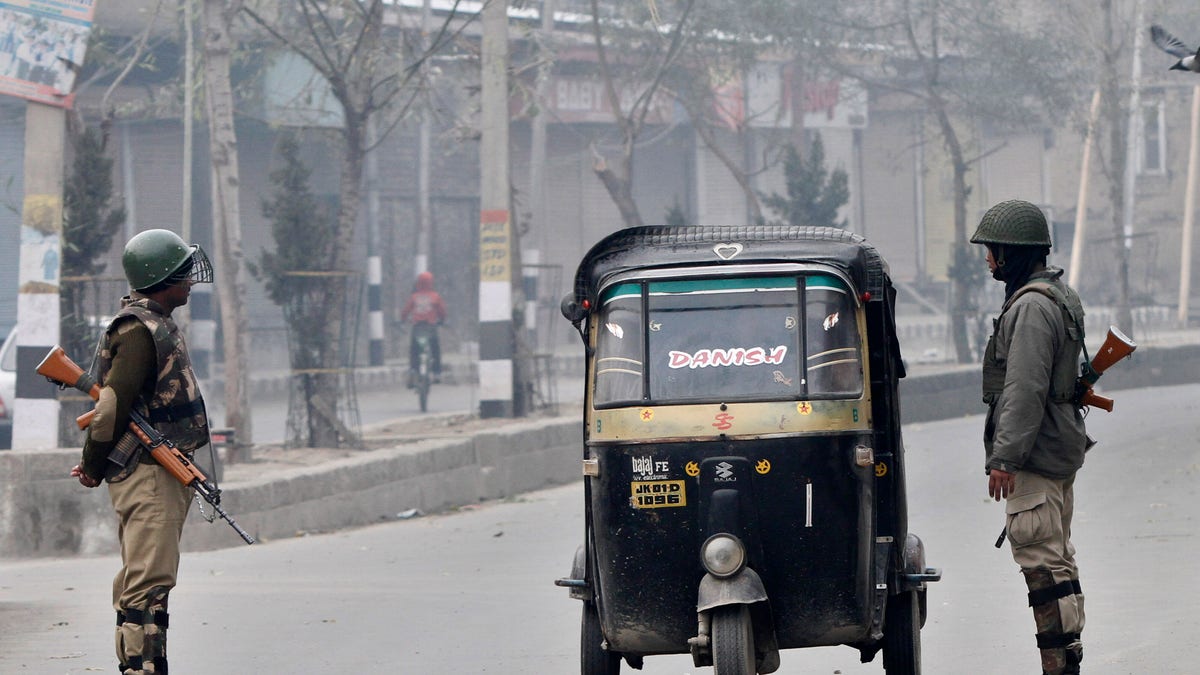
Indian paramilitary soldier interrogate civilians inside an autorickshaw at a temporary check point during curfew in Srinagar, India, (AP)
SRINAGAR, India – Shops and businesses were closed in Indian-controlled Kashmir and small protests broke out after separatists called a strike Wednesday following the killings of two teenagers by army soldiers at a roadblock.
Government forces fired tear gas in a suburb of the main city of Srinagar to disperse protesters who hurled stones at police and paramilitary soldiers. There were no immediate reports of injuries.
The army said Wednesday it regretted the killings, ordered an investigation and removed 16 soldiers from field duty pending the inquiry. The main separatist alliance, All Parties' Hurriyat Conference, called for the strike to press for an independent investigation into the killings.
Kashmir has been wracked for decades by a deadly conflict stemming from a restive population that wants to either secede from India or join Pakistan. Both India and Pakistan claim the region in its entirety, although it's divided between them.
An army spokesman said soldiers fired at a car carrying four young men out on an errand after they failed to stop at two checkpoints in Nowgam, a Srinagar suburb, late Monday.
"Soldiers signaled them to stop, but they sped away. The soldiers fired when they tried to barge through a third checkpoint," said Lt. Col. Nitin N. Joshi.
The two other men were wounded and their condition was stable, Joshi said.
Federal Defense Minister Arun Jaitley said the incident was "highly regrettable" and promised a fair inquiry and action against those found guilty.
The checkpoints had been set up on several roads after the army received a tip about the movement of rebels in the area.
Police have registered a murder case against the soldiers who shot and killed the teenagers, said Abdul Ghani Mir, inspector-general of police in Kashmir.
Human rights groups say authorities routinely order probes to calm public anger.
About 68,000 people have been killed since 1989 in an armed uprising and Indian military crackdown. While the armed rebellion has largely been suppressed, anti-India resentment still runs deep and is mainly expressed through street protests.







































